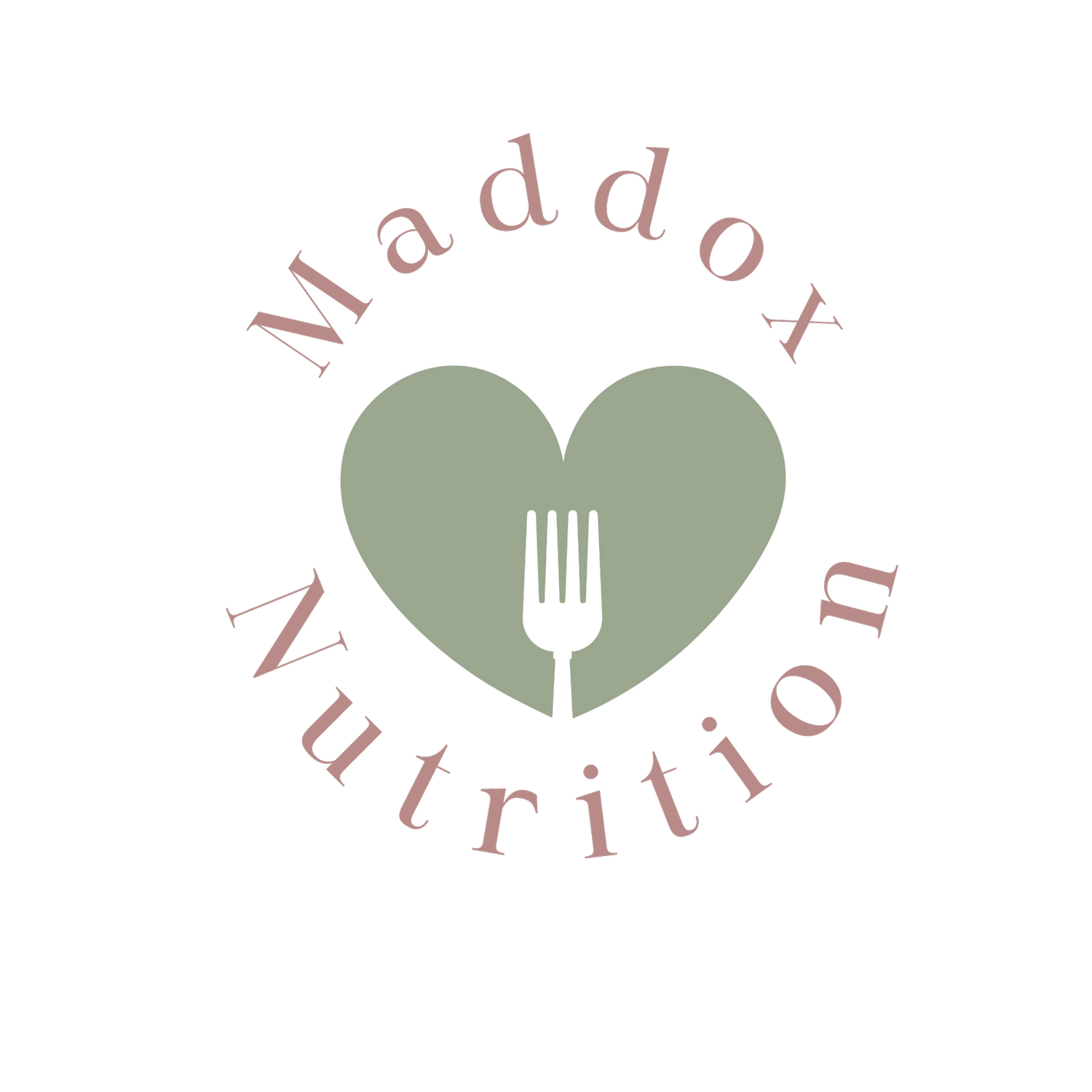How Christian Nutrition Can Support Healing Over Restriction
Navigating your nutrition as a Christian should never feel like a burden. It should not leave you trapped in guilt while striving for impossible food ideals, or feeling like you “fell short” every time you eat something “bad.”
You might believe that your spiritual growth is tied to self-denial. You may equate “clean eating” with holiness. You may even feel that your body is a problem to be tamed rather than a creation to be nourished.
For those navigating eating disorders or disordered eating, this truth may feel both foreign and relieving.
Navigating nutrition as a Christian is not about earning God’s favor through your plate. It is not about being the “healthiest Christian” in the room. Quite frankly, your health on earth won’t matter in heaven.
True nutrition as a believer leads you toward freedom, not fixation. You are invited into a relationship with food that reflects the mercy, abundance, and compassion of Christ, not the rules and rigidity of diet culture.
Let’s explore what happens when Christian nutrition becomes spiritually harmful and how Scripture, not shame, can lead you back to peace with your body and your plate.
When does christian nutrition become spiritually harmful?
Christian nutrition can support healing, but it can also be twisted into something damaging when distorted by rigid thinking, legalism, or diet culture in disguise.
Take a closer look at how Christian nutrition turns spiritually harmful.
When “clean eating” turns into moral superiority
“Clean eating” often starts with good intentions. You want to eat whole foods, take care of your health, and avoid processed ingredients. But what happens when certain foods become “unclean” or “bad,” not just physically, but spiritually?
You might start judging yourself—or others—based on what’s on the plate. Pride creeps in when you resist sugar. Shame floods you when you eat “junk.” Suddenly, food becomes a spiritual test, and your diet becomes a badge of moral achievement.
This mindset does not reflect the heart of Christ. In the Gospels, Jesus rebuked those who focused on outward purity while neglecting inward grace (Matthew 23:25-28). Jesus even declares all foods clean when addressing the now unnecessary Old Testament food laws for his followers (Mark 7:18-23). Here, the word “clean” is being used in accordance with Jewish law, not in the same way our 21st century diet culture uses the word “clean.” But it is an ironic reminder nonetheless!
Eating organic vegetables does not make you more righteous. Drinking a superfood smoothie does not cleanse your soul.
Here’s the hard truth: You are not holier because your meals are “clean.”
When guilt, shame, and legalism replace grace
Legalism says: You must follow the world’s rules to be acceptable.
Grace says: You are accepted, and God’s immense love transforms you.
When nutrition becomes a long list of forbidden foods, daily rigid routines, or weight-related goals “for the Lord,” it mirrors the same legalism Jesus came to set you free from.
You may feel guilty for eating bread. You may shame yourself for enjoying dessert. You may believe that God is disappointed in you for gaining weight. None of this aligns with the gospel.
Jesus does not demand that you earn your worth through body size or food choices. He invites you to rest in His finished work. You can release the shame and begin to rebuild trust—with your body and with your Creator.
When spiritual language covers up disordered behavior
It can be tempting to hide disordered eating behind faith-based language. You might say you are “treating your body as a temple” when in reality, you are terrified of weight gain. You might claim to be “fasting for spiritual clarity” while secretly using it to control your intake through intentional restriction.
Using Scripture to justify restriction, punishment, or over-control does not make those behaviors holy. It only adds a layer of spiritual confusion to your struggle and ultimately keeps you more preoccupied with the self, and less occupied with kingdom work.
God does not require you to suffer for the sake of being thin. His desire is never for you to manipulate your body, which He took care and time to design, in His name. Healing begins when you stop misusing faith to support harmful patterns and start inviting God into the healing process instead.
A closer look on how the scripture encourages nourishment
Christian nutrition rooted in Scripture looks very different from diet culture or legalistic purity. It reflects a God who nourishes, delights in creation, and cares about your wellbeing, both body and soul.
Here are the biblical truths that support your healing.
God created the body as good and worthy of care
Genesis 1:27, 31 (NIV)
“So God created mankind in His own image, in the image of God he created them; male and female he created them.”
“God saw all that He had made, and it was very good.”
Notice that Genesis does not say that your body became good after it reached a certain weight or followed a perfect meal plan. God called your body good from the beginning. That declaration was not conditional.
You were created in God’s image. It means your body reflects His creativity and goodness and it deserves care not punishment, not starvation, not overexertion.
Nutrition as Christians starts with the belief that your body is already good and worthy of gentle, compassionate nourishment.
Jesus ate freely and shared meals often
Luke 7:34 (NIV)
“The Son of Man came eating and drinking, and you say, ‘Here is a glutton and a drunkard, a friend of tax collectors and sinners.’”
Jesus was known for eating freely and dining with those who were judged by society. His presence at meals demonstrated acceptance, not moral superiority.
He broke bread. He fed crowds. He drank wine. He accepted hospitality. His presence at the table communicated belonging, not judgment.
You are invited to do the same. You can eat without fear and you can enjoy food in the company of others. You can trust that sharing a meal is not a failure, it is a sacred practice of connection and grace.
Fasting is about focus, not control
Matthew 6:16–18 (NIV)
“When you fast, do not look somber as the hypocrites do, for they disfigure their faces to show others they are fasting... But when you fast, put oil on your head and wash your face, so that it will not be obvious to others that you are fasting, but only to your Father.”
Fasting in Scripture was never about weight loss and definitely was not a diet strategy. It was a spiritual posture, a way to set aside distractions and reconnect with God.
When fasting is done with the right heart, it draws you closer to God. But when it is used to control or punish the body, it becomes spiritually and physically harmful. If you have struggled with disordered eating and are in the habit of fasting, take time to pray and ask the Holy Spirit to help you examine your motives.
I hope you always remember that God is not asking you to suffer through hunger. He was the one who thought of hunger in the first place. He is asking you to abide in Him.
What healing through faith means for body and soul
Healing your relationship with food is not just about what you eat. It is about how you see yourself, your body, and your God.
When you begin to untangle Christian nutrition from guilt, shame, and fear, something powerful happens. You remember who you are…a beloved child, not a project. You start to trust your body again. You make peace with nourishment. You begin to live in the freedom Christ offers.
Yes, you will still wrestle with thoughts, fears, and insecurities. But now, you have a foundation of grace. You are no longer chasing worth through food restriction and control. And you have the sure and solid foundation of hope of eternity spent with God in a renewed body. Amen!
Embrace a non-diet christian nutrition approach today
A non-diet approach to Christian nutrition does not ignore your health. It honors it through sustainable nourishment, emotional healing, and body respect.
Right now, you can stop measuring your faith by the number on the scale. You can eat, move, and rest in ways that reflect the grace you have received.
You were never called to live under the burden of food rules. You were called to live in freedom.
Start that journey today and embrace Christian nutrition that reflects God’s heart for you—a heart that welcomes you to the table, just as you are.
Need support as you walk through healing with faith and food?
You are not alone. Explore Christ-centered nutrition counseling designed for eating disorder recovery at Maddox Nutrition. There is grace for you here.
—
What you need to know
The difference between a Dietitian and Nutritionist
A dietitian is a regulated healthcare professional who has completed formal education in nutrition and dietetics, undergone supervised training, and is licensed to provide medical nutrition therapy for conditions such as diabetes, eating disorders, or gastrointestinal issues.
The title “dietitian” is legally protected in many countries, ensuring that only those who meet strict professional standards can use it.
In contrast, the title “nutritionist” is not always regulated, meaning anyone can call themselves a nutritionist regardless of training, though some may hold advanced degrees or certifications. Generally, dietitians are qualified to offer clinical nutrition care, while nutritionists often focus on general wellness and healthy lifestyle guidance.

